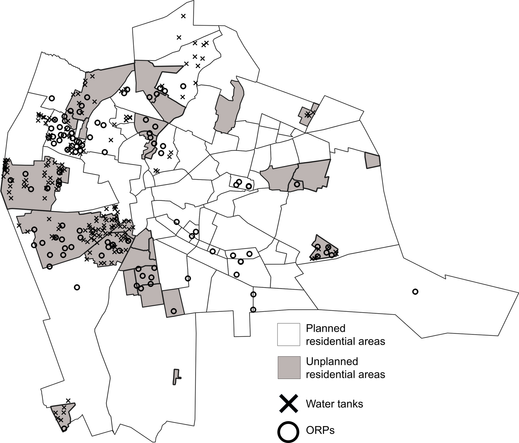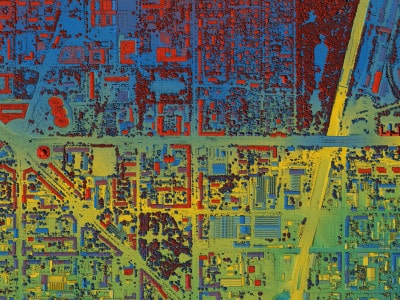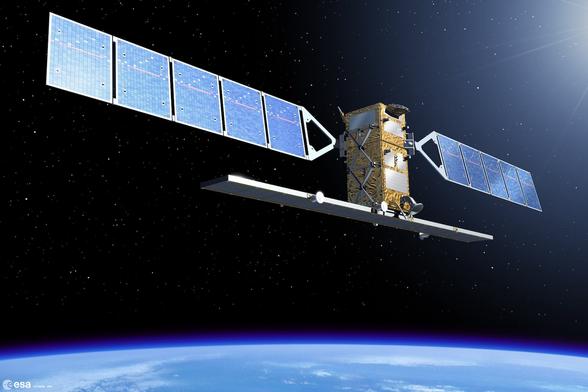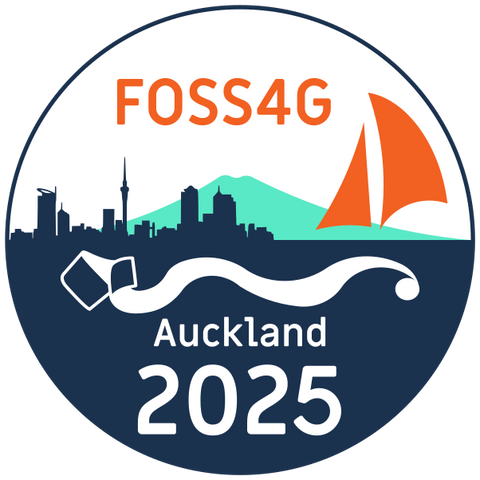#Geospatial analysis of cholera outbreak in Lusaka, Zambia, between 2023 and 2024
https://tropmedhealth.biomedcentral.com/articles/10.1186/s41182-025-00718-4

#Geospatial analysis of cholera outbreak in Lusaka, Zambia, between 2023 and 2024
https://tropmedhealth.biomedcentral.com/articles/10.1186/s41182-025-00718-4

In the field of #RemoteSensing, precision and reliability are critical for capturing and analyzing data that drives decision-making across a wide range of industries. Optical filters are tailored to meet the unique requirements of many applications, such as #geospatial #mapping, #hyperspectral imaging, #environmental monitoring, #agricultural health, #weather and #cloud monitoring, #LiDAR and 3D #earth mapping. Learn more: https://ilphotonics.com/optical-filters-for-remote-sensing-applications/

First day of the #stapi sprint at #developmentseed was fueled by lots of interesting discussions on issues like intersections with #stac and #ogcapi . Looking forward to more, tomorrow! #standards #geospatial #eo
Open SAR data: Synthetic Aperture Radar (#SAR) is an interesting #remotesensing technology that captures high-resolution data of the Earth’s surface, regardless of weather or lighting conditions. This curated collection of open SAR data sources provides an...
https://spatialists.ch/posts/2025/04-01-open-sar-data/ #GIS #GISchat #geospatial #SwissGIS

In 1 week, @esri webinar: Enhance Your #Business Decisions with #ArcGIS for #Microsoft https://tinyurl.com/4ff7crha
#location #spatial #intelligence #geospatial #GIS #esri #mapping #GISchat #ArcGISApps #mapstodon @esrifederalgovt @esrislgov @esritraining @arcgisapps @urisa @msftnews
Just stumbled upon this list of awesome #geospatial companies!
A list of 700+ geospatial companies & interactive map. For finding geospatial jobs, customers and understanding the geospatial industry!
The largest competitor to proprietary #GIS is open source software and tools – #FOSSGIS infrastructure is now at a level where municipalities and companies shift away from proprietary solutions. Would anyone happen to have any material (case studies etc.) on this topic to prove this point?
#QGIS #Esri #Geospatial
#Slack it to Me: Setting Up #ArcGISMonitor Webhooks for Instant Alerts https://tinyurl.com/3pw3xmzt by #CloudpointGeospatial
#ArcGISEnterprise #ArcGISAdmin #GIO #IT #systemhealth #observability #GIS #esri #arcgis #GISchat #geospatial #mapstodon @esri @esrifederalgovt @esrislgov @arcgisxprise @esritraining @urisa
hey there's #FOSS4G2025 news!
Call for papers is open: https://2025.foss4g.org/attend/call-for-papers
Travel grant program is open:
https://2025.foss4g.org/attend/travel-grant-program
You can register to attend:
https://2025.foss4g.org/attend/register
Voting on a logo is open! Proposals and voting link here: https://wiki.osgeo.org/wiki/FOSS4G_2025/Logo_Entries)
Go propose talks/register/apply for travel grants/vote for a logo!
Swing by Australia on the way and come climbing ;)
(ping @osgeo and followers)

FOSSGIS 2025: (M)eine Nachlese / My review https://geoobserver.de/2025/03/31/fossgis-2025-meine-nachlese/ #fossgis #fossgis2025 #gistribe #gischat #OSGeo #spatial #geospatial #opensource #opendata #osm #openstreetmap #gis #geo #geoObserver pls RT
Always on the hunt for the ideal note-taking app. I tried #Logseq, and while I loved the logbook, I prefer to organize my notes in a tree-like hierarchy. It helps me to keep an overview.
I switched to TriliumNext (https://github.com/triliumnext). The option to place notes as clones in multiple locations provides both the navigational clarity of folders and the flexibility of tags.
And as a geo-fan, I really like the option to create map notes.
New blog post: Learning resources for GIS in Python with cloud-native geospatial, PostGIS and more: https://blog.rtwilson.com/learning-resources-for-gis-in-python-with-cloud-native-geospatial-postgis-and-more/
I recently sent a list of learning resources to a MSc student I'm working with, and (with her permission) am sharing in case others find it useful
In 5 days, @esri webinar: #ArcGIS Workflow Manager - Integrate Work Across the ArcGIS System https://tinyurl.com/4ksmbvn9
#DataMgmt #workflows #analysis #GIO #GIS #esri #mapping #GISchat #geospatial #TheScienceOfWhere #mapstodon @esrifederalgovt @esrislgov @esritraining @urisa
The origins of GIScience in Switzerland with Rob Weibel: Robert Weibel, Professor of Geographic Information Science at the University of Zurich, retired at the end of January 2025 after a distinguished career spanning over three decades. In an interview, Rob reflects on the remarkable evolution of...
https://spatialists.ch/posts/2025/03-27-the-origins-of-giscience-in-switzerland-with-rob-weibel/ #GIS #GISchat #geospatial #SwissGIS

Auch heute gibt es wieder die Chance mit unseren zahlreichen Ausstellern ins Gespräch zu kommen - im Schloss und Zelt. Nutzen Sie gerne die Gelegenheit für den direkten Austausch auf der #FOSSGIS2025
#FOSSGIS #OSGeo #FOSS4G #OSM #Geospatial #GIS
Kennen Sie schon den @FOSSGISeV?
Wir fördern freie Software aus dem GIS-Bereich & Freie Geodaten, sind das Local Chapter der OSGeo & der OSMF & organisieren die FOSSGIS-Konferenz.
Wir freuen uns über neue Mitglieder & auf einen Besuch am Stand des FOSSGIS e.V. im Foyer auf der #FOSSGIS2025
Informationen zum Verein https://www.fossgis.de/verein/
#FOSSGIS #OSGeo #FOSS4G #OSM #Geospatial #GIS
Es gibt wieder eine Jobbörse im Rahmen der #FOSSGIS2025 Konferenz. Ort Ort steht die Pinnwand im Zelt. In Kooperation mit GoGeoGo gibt es vom 17.03.-07.04. auch eine digitale Jobbörse. https://www.gogeogo.com/de/company/fossgis-2025
#FOSSGIS #OSGeo #FOSS4G #OSM #Geospatial #GIS